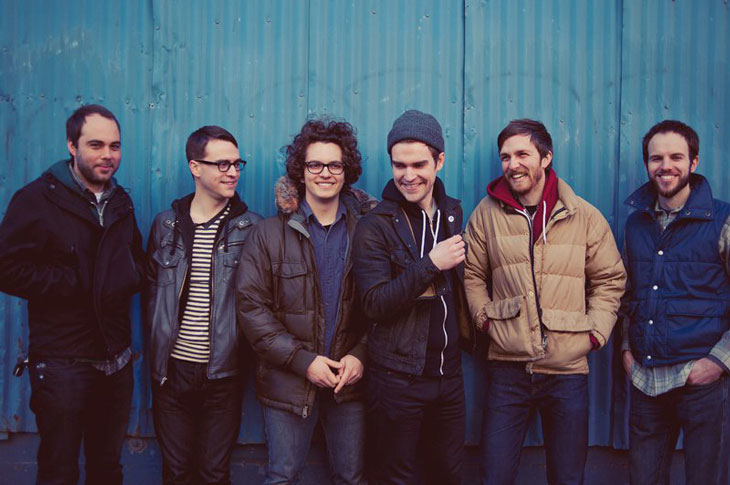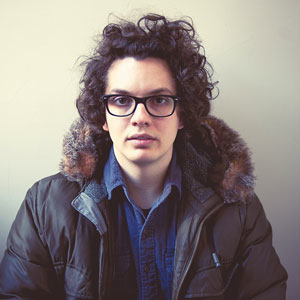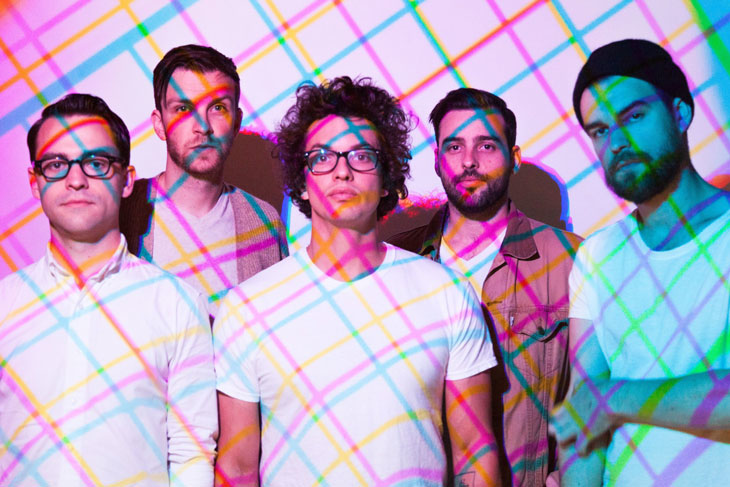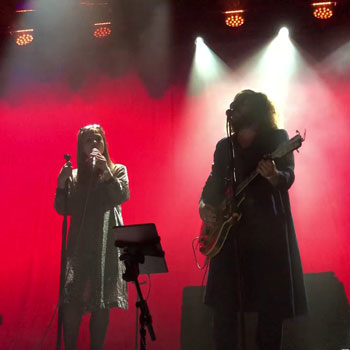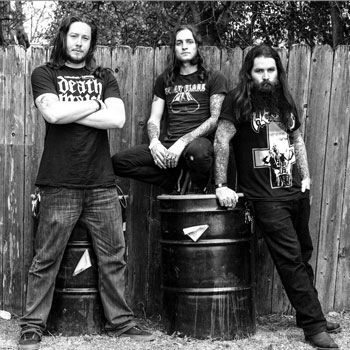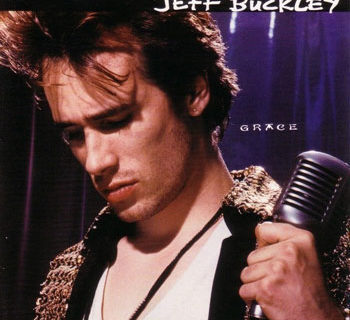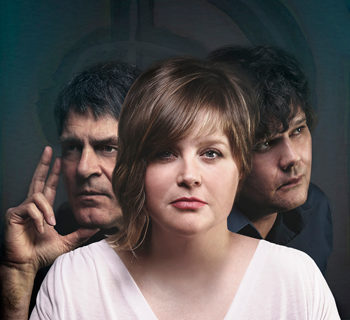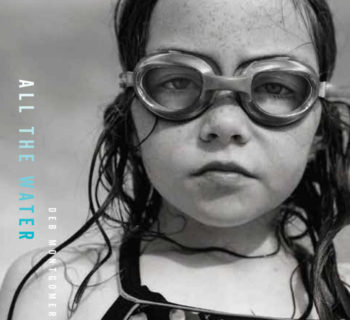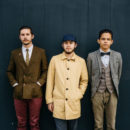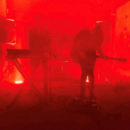Pickwick Returns with LoveJoys
For more than five years, Pickwick has been a notorious standout of Seattle—a city whose Starbucks coffee shops are outnumbered only by its indie bands. With so much noise, it's no easy place for a group to rise above the din, yet Pickwick's exuberant live performances have made them a local legend. In songs like “Hacienda Hotel,” Pickwick groove out a funky, garage-rock sound spiced with gospel, soul, and psychedelia, and frosted over by the Sam Cooke-meets-Dan Auerbach vocals of singer Galen Disston.
With LoveJoys, released in July, Pickwick emerges from a trying four years that saw the exit of the band’s percussionist and in-house producer and some long, hard looks in the mirror. Fellow Seattle-legend and producer Erik Blood stepped in to infuse new blood (pun intended) and vigor to the band, recording an album that’s emotionally looser than its predecessors, but more polished musically. LoveJoys' first single, "Turncoat," is a great example, encapsulating a sound both danceable and contemplative.
Recently, Pickwick singer Galen Disston spoke with Rawckus about LoveJoys, the new tour, the challenges of Seattle, and his side job of window cleaning.
Rawckus: How's the tour going?
Galen Disston: The tour is going okay. We just did a couple dates in Canada, and then we just did Orcas Island. We've done it a couple times and that's always, well, fucking perfect.
What are some of the highlights or lowlights so far?
GD: That's a good question. There was a guy from an opening act in Victoria who got dared by other members of his band to come up onstage without a shirt, which he did, during our set. He came in peace. He brought up some whiskey and started going around giving everyone a hit of the whiskey, and then he came to me and gave me the whiskey. I took the bottle and thanked him and was sort of expectantly waiting for him to walk offstage, because you know the moment was pretty much over. But he was still kind of dancing and pointing to his friends. So, just to get to nudge him a little bit off the stage I just took the bottle of whiskey and splashed it on his crotch. (laughs)
Are you playing exclusively LoveJoys songs on this tour, or are you dipping into the whole catalog?
GD: We do some stuff from Can't Talk Medicine, but on this tour we're focusing more on LoveJoys. I think we play the whole record, not in order or anything, but we play all the songs.
How's the reception been for LoveJoys?
GD: It's been good. Everything we've written up to now has been more of a live song. LoveJoys is the first time we’ve made a record that you also listen to in one sitting without getting exhausted. With Can't Talk Medicine, we're singing real hard and there's not a lot of dynamics, and production's pretty intense and in your face. On this record, we wanted a more dynamic range. We wanted higher highs, lower lows. The songs require more of us in different ways. You know, like I have to be more subtle. I have to use my falsetto. I have to do a lot of things I didn't on those first tours.
So the first one was literally, physically more intensive to perform?
GD: For sure. Because I was singing at 80, 85 percent the entire time. Where now, the set has a lot more ups and downs, which, I think the audience is responding to. A lot of people do come to our shows expecting to get pumped up, and I don't think we disappoint them. But I think we also show a broader range of what we're capable of and where we're headed, too.
A lot of people do come to our shows expecting to get pumped up, and I don't think we disappoint them. But I think we also show a broader range of what we're capable of and where we're headed, too.
Is LoveJoys indicative of the future vision of the band?
GD: We've written the majority of the songs for the third record. I think we're going to go record between tours, just to get the basics of some of those new songs down. But, yeah, I think we're focusing more on songwriting. It's mellower in parts. It's just different a different side of us.
It sounds like your intent is to start producing more material more regularly.
GD: Yeah, in some ways by design and some ways just by circumstances, I think we've got it dialed in, whereas in-between the last two records we were searching for what works best, which I think we know now and will be able to maintain.
That seems like kind of a different approach to how most things are done today, with everything moving so fast. To take the time to sit back and really figure out what you're doing.
GD: Yeah, I read a quote by the hip hop DJ MF Doom, where he said, “Sometimes I need to just shut up and listen and pay attention to what's going on before I have more material.” I don't think that's what our intent was originally, but I think the space sort of allowed us to put out a record we love as opposed to just throwing out a record and hoping that it sticks.
Your first two albums revolved around themes, with Can't Talk Medicine about mental illness and LoveJoys about your deep existential fears of your wife leaving you. Does the third revolve around a theme?
GD: Well there are no lyrics yet for the third one. A lot of the melodies and the songs are, but the lyrics aren't. So I've been trying to keep that as relevant as possible with the time and space where I'm at. So we'll go in and record the basics, and I have some phrases, but I don't really know yet if there's sort of an overarching theme. With LoveJoys, the theme became apparent and still continues to reveal itself to me as I live and sing those songs. There are still new meanings that come out to me, which is creepy, the me of the past writing to myself without really knowing it.
That's an interesting idea. It's also interesting that you write the music first and then only later do the lyrics.
GD: Well, we've tried both. I just think this works better for me. Actually, in Can't Talk Medicine, I did my best to sort of do word collages. But I had a theme and intent for every song lyrically, and I had an intent from top down. So I think if you listen now, some of them are too wordy, awkward, verbose, or cumbersome, and I think I've tried to dial that back for this record and let the songs dictate what kind of diction they require. I'm just trying to not squeeze square pegs into round holes.
What's the song "Turncoat" about?
GD: We were writing and recording that song when the Trump video came out about him grabbing the pussy. So, it's sort of a commentary on male sexual privilege. So that's what came out, because we were all confused about how this man was a legitimate presidential candidate. And now all of our greatest fears have been realized, that that slimy motherfucker is president.
Considering LoveJoys is largely about your wife, it makes me wonder if you take your wife on tour with you.
GD: No. I mean, we travel in a van. I have two kids, too, so it would be cruel and unusual parenting to make my kids sit in car seats all day long. (laughs). I mean, maybe one day if we ever make any money at this, it will be cool to take them to certain places, specifically. But, they have their lives, and it's not really fair for me to uproot them to follow me around. I think that's why we've done our best to make our tours sustainable. I'm not an 18-year-old that lives in a van and eats Ramen. I have responsibilities. I'm really thankful that I get to go on our, but there's a cost to that, a cost I'm willing to take on and am thrilled about, but a cost nonetheless.
Does that also maybe feed into your fears a little bit?
GD: Yeah, of course. (busts up laughing) I mean, living in this type of perpetual uncertainty is in some ways exciting because you don’t know what tomorrow's going to be like, but it also fucking makes you crazy.
What do you do between recording and tours?
GD: I clean residential windows.
Wow, that's not a side job I've ever heard from any musician.
GD: There's a little type of cult up here in Seattle. A musician taught me (window cleaning). It's all run by musicians. But it's awesome, because we're all subcontractors and we can come and go as we please. We just say, "I'm going to be gone for the next month. Take me off the schedule."
I see the band listens to a lot of gospel. How does that influence your sound or performance?
GD: We listen to dingy old gospel. There's something about it that borders on haunted. I think that's where our interest is. It has to be a little bit haunted.
How difficult it is to make it as musician in Seattle, because of the rising real estate costs. Will you need to leave Seattle?
GD: I do a podcast called From the Green Room where I talk to local musicians. The first episodes were all about my insecurities and whether or not it would continue to be a good place to make music. I have kind of resigned myself to the fact that if I ever do decide to close up shop and scale down a bit, we will have to move out of the city. And I do believe that the culture and the musicians who have inspired me there throughout the years aren't going to keep making music the way they have been. But, in terms of the Pacific Northwest in general, it's still beautiful and one of the cheapest places to live on the West Coast. But, the city of Seattle is getting to the point where trying to live there is fucking Looney Tunes.
Well, I hope LoveJoys tips you guys over the edge, so you can stay in Seattle. You're a city landmark.
GD: No problem, man. Thank you.

